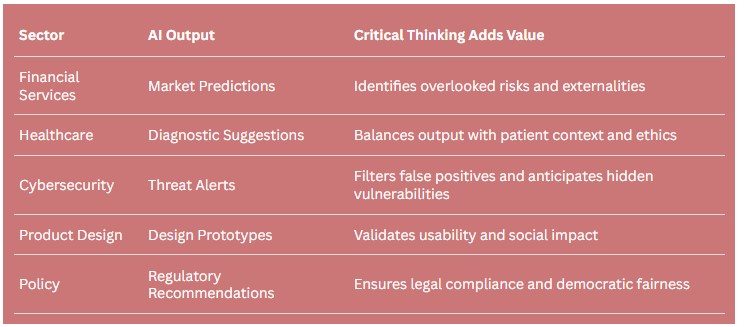7667766266
enquiry@shankarias.in
Mains: GS3 - Science and Technology - developments and their applications and effects in everyday life.
In the recent trends AI is becoming a common tool in the workplace, but critical thinking remains essential for navigating its impact effectively.
Microsoft’s 2024 Work Trend Index says that a whopping 75% of Gen Z workers and 68% of Millennials utilize generative AI tools like ChatGPT or Copilot for work every week.
|
Generational Divisions |
|
To know more about AI, click here
The World Economic Forum’s Future of Jobs Report 2025 says it clearly - critical thinking is now one of the three most important talents for the future.
